Support Equality

How does gender equality affect participation in competitive sports ?
Gender equality is a fundamental human right that ensures individuals are not discriminated against based on their sex. In the realm of competitive sports, gender equality can significantly influence participation rates, access to resources, and overall opportunities for athletes. This discussion will explore how gender equality affects participation in competitive sports. The importance of gender equality in sports includes equal opportunities, media coverage and representation, financial support and sponsorship, and safety and well-being. Challenges faced due to lack of gender equality include unequal participation rates, limited career opportunities, and cultural barriers. Strategies to promote gender equality in sports include policy changes, education and awareness, and supportive infrastructure development. In conclusion, gender equality plays a crucial role in determining participation rates in competitive sports. By addressing issues such as unequal opportunities, media representation, financial support, safety concerns, and cultural barriers, we can create a more inclusive environment that encourages females to engage actively in sports. Through policy changes, educational initiatives, and supportive infrastructure development, we can promote gender equality within the world of competitive sports, ensuring that talent and passion are the only determining factors for success.

What is the role of gender equality in achieving climate justice and sustainability ?
Gender equality is a key component in achieving climate justice and sustainability. It ensures equal opportunities for all individuals to participate in decision-making processes related to climate change mitigation and adaptation strategies, including access to education, healthcare, and economic resources. Gender equality recognizes the vulnerabilities of women and girls affected by climate change, promotes inclusivity, enhances resilience, drives innovation, and addresses intersectionality. Strategies for achieving gender equality in climate action include incorporating gender perspectives into policies, increasing representation, providing resources, encouraging collaboration, monitoring progress, educating stakeholders, advocating for legal protections, promoting cultural change, supporting research, and sharing best practices.
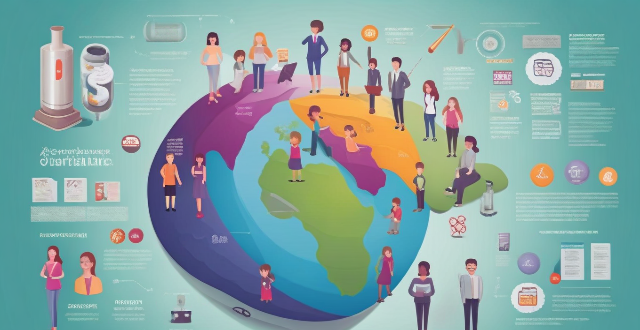
How have women's empowerment initiatives affected gender equality globally ?
The essay discusses the impact of women's empowerment initiatives on gender equality globally. The initiatives have increased access to education and training for women, leading to their active participation in public life. They have also provided economic empowerment through financial resources, microfinance loans, and entrepreneurship training programs, resulting in greater gender equality in the workplace. Health and reproductive rights have been improved through awareness campaigns and advocacy for policies supporting family planning and contraception. Finally, these initiatives have encouraged women's political participation, creating a more diverse and representative government. Overall, women's empowerment initiatives have played a crucial role in promoting gender equality worldwide.

In what ways can we promote gender equality in sports for young children ?
Gender equality in sports is crucial for fairness and respect, especially among young children. To promote this, mixed-gender teams should be encouraged, equal opportunities provided, non-binary athletes supported, coaches and parents educated about gender equality, diversity celebrated, gender bias addressed, and safe spaces created for all athletes.

How has sports contributed to gender equality ?
Sports have contributed to gender equality by increasing participation, equal pay, media coverage, and female leadership in sports administration.

What role do sports organizations play in promoting gender equality within their leagues or competitions ?
Sports organizations have a crucial role to play in promoting gender equality within their leagues or competitions. They can ensure that all athletes, regardless of their gender, have equal opportunities to participate and succeed in sports through various measures such as ensuring equal representation, providing equal pay and prize money, creating safe and inclusive environments, promoting female athletes as role models, and offering educational programs and workshops focused on gender equality in sports. By implementing these measures, sports organizations can create a culture of respect and inclusivity while ensuring that all athletes have equal opportunities to participate and succeed in sports.

How can we use sports to promote gender equality and empower women and girls ?
Promoting gender equality and empowering women and girls through sports involves increasing visibility, ensuring fair representation, improving access and inclusivity, providing education and training, implementing policy and legislation, promoting health and wellness, encouraging economic empowerment, engaging the community, and fostering cultural change. These efforts aim to break down barriers, challenge stereotypes, and create opportunities for women and girls to thrive both on and off the field.
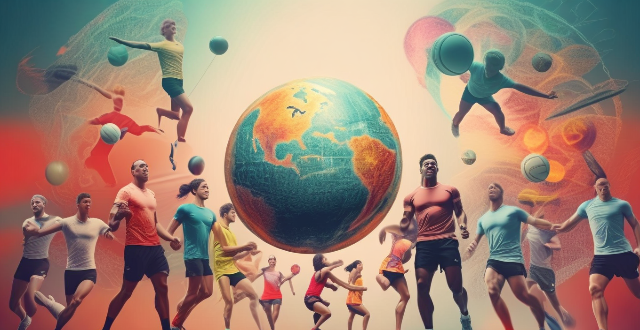
To what extent does the globalization of sports contribute to social equality and inclusion ?
The globalization of sports has led to increased opportunities for athletes from different backgrounds and cultures, but also poses challenges to social equality and inclusion. Efforts are needed to address these challenges and promote fairness, inclusivity, and respect for all athletes.
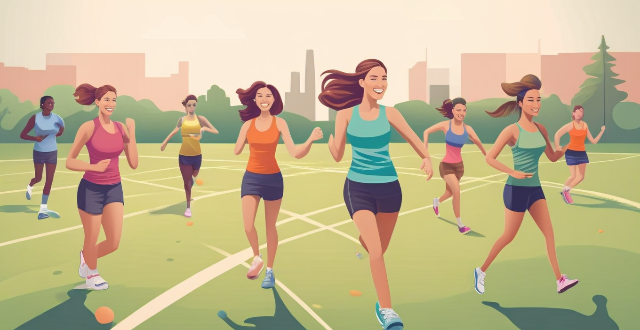
Can sports be used as a tool for breaking down social barriers and promoting equality ?
The power of sports to bring people together and foster a sense of community is undeniable. However, the question remains: can sports be effectively utilized as a tool for breaking down social barriers and promoting equality? Sports organizations are increasingly recognizing the importance of diversity both on the field and off. By actively recruiting athletes from different backgrounds, sports can serve as a visible symbol of inclusion. Through exposure to diverse teams and athletes, sports can help dispel stereotypes and prejudices, encouraging fans and participants alike to appreciate the unique talents and contributions of individuals regardless of their background. Participation in sports teaches valuable life skills such as teamwork, discipline, and perseverance, which can be instrumental in overcoming social barriers. Success in sports can empower individuals, particularly women and minorities, by providing a platform for them to showcase their abilities and achieve recognition. Major sporting events can stimulate local economies by creating jobs and promoting tourism. Investments in sports facilities can revitalize neglected areas, providing much-needed resources and encouraging further development. Grassroots sports programs can engage community members, fostering a sense of belonging and pride that extends beyond the playing field. Unequal distribution of resources can hinder the ability of some communities to fully participate in sports. Physical accessibility for athletes with disabilities remains a crucial issue that needs to be addressed comprehensively. Ensuring equal opportunities and treatment for female athletes continues to be a focal point in the fight for equality in sports. Efforts to promote diversity must be genuine and avoid tokenism, ensuring that all participants feel valued and respected. Organizations must continuously assess their progress toward inclusivity and make necessary adjustments to maintain effectiveness. Educating stakeholders about the importance of inclusivity and equity is essential for maintaining momentum and driving change.

How can companies promote gender equality in the workplace ?
In full: Companies can promote gender equality in the workplace by implementing gender-neutral hiring practices, providing equal opportunities for advancement, ensuring equitable pay and benefits, fostering an inclusive culture, addressing harassment and discrimination, supporting women in non-traditional roles, and celebrating achievements and diversity.

What is the role of sports sponsorship in promoting gender equality in sports ?
Sports sponsorship is crucial for promoting gender equality in sports. It provides financial support to female athletes, increases visibility of women's sports, creates role models, and promotes equity by ensuring equal funding for both men's and women's sports. This helps break down barriers and create opportunities for female athletes to compete at the highest levels.
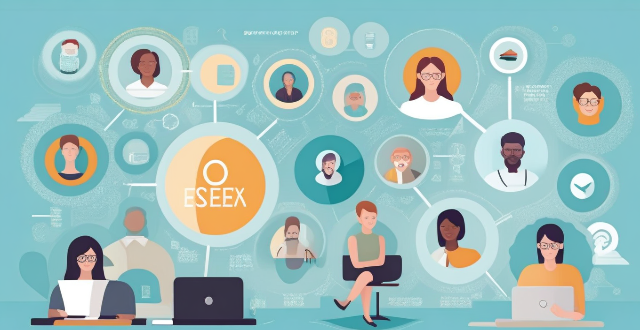
How do female entrepreneurship programs contribute to economic growth and gender equality ?
Female entrepreneurship programs contribute to economic growth and gender equality by providing women with resources, training, and support. They create job opportunities, diversify the economy, and generate tax revenue. These programs also address challenges faced by women in business, such as access to capital, networking, and breaking down stereotypes. Overall, they promote a more diverse and innovative economy while fostering equal opportunities for all individuals regardless of gender.

What are the current global challenges in achieving gender equality in education ?
Gender equality in education is a fundamental human right and key to economic growth, social development, and poverty reduction. However, several challenges hinder its achievement globally. One major challenge is the lack of access to education for girls due to poverty, cultural beliefs, and traditional roles assigned by society. Another challenge is gender bias in curriculum and teaching methods that lead to a lack of representation and role models for girls while perpetuating harmful stereotypes about gender roles. Sexual harassment and violence against girls in schools also hinder gender equality in education by creating an unsafe learning environment that can lead to low self-esteem, anxiety, depression, and dropping out of school altogether. Insufficient funding for girls' education prevents schools from providing proper facilities, materials, or trained teachers needed to support girls' learning. Addressing these challenges requires policy changes, increased funding, improved curriculum design, teacher training programs, and awareness campaigns targeting both parents and communities.

What are the current trends in fundraising for women's rights and empowerment initiatives ?
Fundraising for women's rights and empowerment initiatives is gaining momentum, driven by various stakeholders. Corporate social responsibility programs focus on education, microfinance, and mentorship for women. Philanthropic foundations like the Gates and Ford Foundations invest in health, economic empowerment, and leadership projects. Crowdfunding platforms such as Kickstarter and GoFundMe enable individuals to support causes like legal fees for victims of harassment. Government grants from the US and EU fund reproductive health and gender equality projects. These efforts are crucial for promoting gender equality and ensuring equal opportunities for all.

What role do women play in addressing climate change ?
Women's Role in Addressing Climate Change: Women play a crucial role in addressing climate change through leadership and advocacy, innovative solutions, community engagement and education, and promoting gender equality and climate justice. They have led international negotiations, founded organizations dedicated to climate action, developed new technologies and business models, engaged in activities such as tree planting and waste reduction, and advocated for gender equality in decision-making processes. Women's contributions are essential to achieving a sustainable future for all.

What policies can low-income countries implement to promote gender equality and women's empowerment ?
This article discusses various policies that low-income countries can implement to promote gender equality and women's empowerment. It highlights the importance of education, healthcare, economic development, legal protections, and cultural norms in achieving these goals. The article suggests policies such as equal access to quality education, vocational training programs, reproductive health services, microfinance programs, non-discriminatory hiring practices, protection from violence, property rights, positive media representation, and community mobilization. By implementing these policies, low-income countries can create a more inclusive and equitable world for all genders.

What are some successful examples of integrating gender equality into climate change initiatives ?
Integrating gender equality into climate change initiatives is crucial for achieving sustainable development and ensuring that everyone benefits from environmental protection measures. Successful examples include promoting women's participation in decision-making, incorporating gender perspectives into policies and programs, supporting women-led climate action initiatives, and addressing gender-based violence in climate displacement. These efforts not only promote social justice but also enhance the effectiveness of climate actions by harnessing the strengths and contributions of all individuals, regardless of their gender.

What policies or initiatives have been implemented to ensure equal pay and opportunities for both men and women in professional sports ?
In recent years, there has been a growing movement to ensure equal pay and opportunities for both men and women in professional sports. This has led to the implementation of various policies and initiatives aimed at achieving gender equality in sports, including gender equality laws and regulations, collective bargaining agreements (CBAs), wage transparency policies, gender quotas and targets, gender equality initiatives and programs, and improved media coverage and representation of women's sports. While progress has been made towards ensuring equal pay and opportunities for both men and women in professional sports, there is still much work to be done. By continuing to implement policies and initiatives that promote gender equality, sports organizations can create a more inclusive environment where all athletes can thrive regardless of their gender.

How does climate change affect gender equality ?
The text discusses the impact of climate change on gender equality, highlighting increased vulnerabilities for women in health, economics, and social factors. It further points out how climate change exacerbates existing inequalities through gender-based violence and educational setbacks. However, it also identifies opportunities for resilience and empowerment through resilient livelihoods, enhanced participation, and improved health and safety measures. The conclusion emphasizes the importance of addressing climate change with a gender lens to achieve sustainable development and a more equitable future.

What role does sports culture play in promoting gender equality ?
Sports culture has a significant impact on promoting gender equality by providing equal opportunities for participation, challenging stereotypes, and building inclusive communities. It empowers individuals through participation, leading to increased self-confidence and a sense of accomplishment. By recognizing and celebrating diverse representations of gender, sports culture can help to break down barriers and promote greater acceptance and respect for all individuals.

How can we promote gender equality in climate policy making ?
Promoting gender equality in climate policy making is crucial for ensuring inclusive policies that address the needs of all genders and harness the potential of everyone in combating climate change. Key strategies include ensuring equal representation of men and women at all levels of decision-making, addressing gender-specific impacts of climate change, promoting education and training, collaborating with women's organizations, and creating safe spaces for open expression. By implementing these measures, we can move towards more effective and equitable solutions to tackle climate change.

What steps can be taken to achieve gender equality in the workplace ?
To achieve gender equality in the workplace, organizations should implement diversity policies, encourage women to apply for leadership roles, address sexual harassment, offer flexible work arrangements, and foster an inclusive culture. These steps will create a fair and diverse work environment where everyone feels valued and respected regardless of their gender identity.

How can multicultural education promote social justice and equality ?
The text discusses the role of multicultural education in promoting social justice and equality. It emphasizes that this approach helps in recognizing and valuing differences among individuals, encouraging open-mindedness, addressing stereotypes and prejudices, providing equal opportunities, enhancing intercultural understanding, and preparing students for global citizenship. Overall, multicultural education contributes to creating a more equitable and harmonious society by fostering inclusivity and breaking down barriers.

How can schools best support students with special education needs ?
Schools can best support students with special education needs by implementing individualized education programs, fostering inclusive classrooms, encouraging collaborative teamwork, providing differentiated instruction, offering accessible learning materials, and adopting positive behavioral interventions and supports.
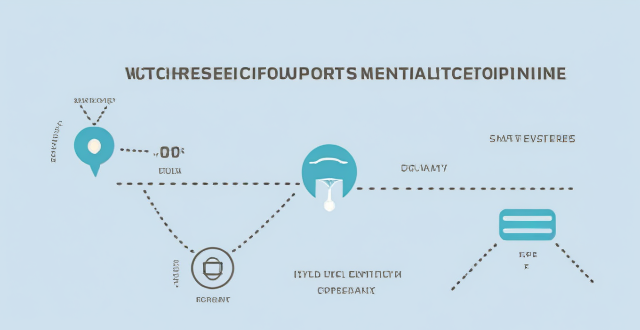
Can existing devices support 5G network ?
This article discusses whether existing devices can support 5G network and what factors influence this compatibility. The most important factor determining whether a device can support 5G is its hardware, including the modem, antenna, and other components required for 5G connectivity. Another factor that can affect compatibility is the software on your device, such as an outdated operating system or lack of necessary drivers and firmware updates. Finally, even if your device has the necessary hardware and software, you still need to have a carrier that supports 5G in your area. To check if your device is compatible with 5G, you can check your device's specifications, ensure that it is running the latest operating system and has all necessary drivers and firmware updates installed, contact your carrier to see if they offer 5G service in your area and if your plan includes access to this network, and consult with a professional or contact the manufacturer for assistance.

What types of infrastructure are needed to support widespread use of electric vehicles ?
The widespread adoption of electric vehicles necessitates the development and expansion of various types of infrastructure to support their charging needs, including public and residential charging stations, energy infrastructure, information systems, maintenance and support services, and urban planning and design.

Can the new iPhone model support dual SIM cards ?
The latest iPhone models support dual SIM cards, offering users more flexibility and convenience when managing their calls and messages. Key features of dual SIM support include dual standby, data switching, international travel, and separate work and personal numbers. To set up dual SIM on your iPhone, insert two Nano-SIM cards, enable dual SIM support in settings, choose a default line, assign labels to each SIM card, and manage data plans accordingly.

**Does Apple provide customer support for solving iCloud sync issues ?
Apple offers various support channels for solving iCloud sync issues, including a website with troubleshooting guides, online chat and phone support, in-person assistance at Apple Stores or authorized providers, email support, and community forums. These options ensure that users can find help suited to their preferences and needs.

What are the most common types of fan support activities for musicians ?
Musicians depend on various fan support activities to build their careers, including attending concerts, streaming music, following on social media, participating in online communities, writing reviews, creating fan art, and organizing fundraising campaigns. These activities help generate income, increase exposure, strengthen connections with fans, and provide valuable feedback and support for musicians' endeavors.